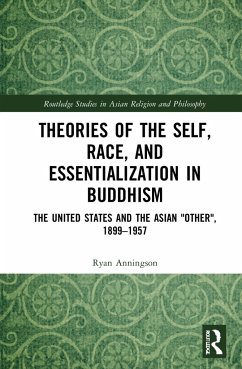
Ascetic Practices in Japanese Religion
Versandkostenfrei!
Versandfertig in über 4 Wochen
185,99 €
inkl. MwSt.
Weitere Ausgaben:

PAYBACK Punkte
93 °P sammeln!
Ascetic practices are a common feature of religion in Japan, practiced by different religious traditions. This book looks at these ascetic practices in an inter-sectarian and inter-doctrinal fashion, highlighting underlying themes common to all forms of asceticism. It does so by employing a multidisciplinary methodology, which integrates participant fieldwork with a hermeneutical interpretation of the body as the primary locus of transmission of the ascetic 'embodied tradition'. By unlocking this 'bodily data', the book unveils the human body as the main tool and text of ascetic practice. This...
Ascetic practices are a common feature of religion in Japan, practiced by different religious traditions. This book looks at these ascetic practices in an inter-sectarian and inter-doctrinal fashion, highlighting underlying themes common to all forms of asceticism. It does so by employing a multidisciplinary methodology, which integrates participant fieldwork with a hermeneutical interpretation of the body as the primary locus of transmission of the ascetic 'embodied tradition'. By unlocking this 'bodily data', the book unveils the human body as the main tool and text of ascetic practice. This book includes discussion of the many extraordinary rituals practiced by Japanese ascetics.














